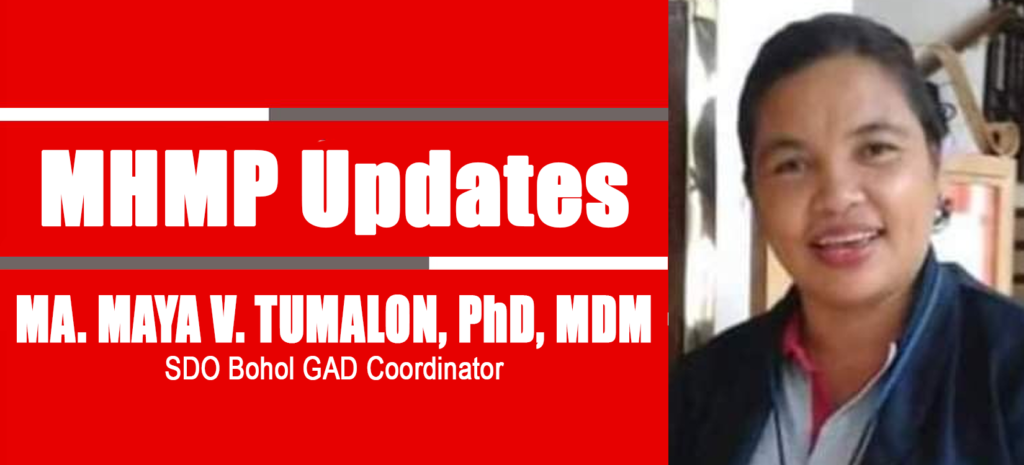
COVID-19, the worldwide pandemic predicted by many is happening. Everything is changing and face-to-face conversation is being eliminated, Instructional processes and techniques for diverse learners will be difficult to implement in kindergarten classrooms. Isolation facilities are now being used in prepared classroom environments that were created with the teachers’ initiative, time, and energy. Teachers have been warned not to remain in schools that have been designated as isolation and quarantine zones and that is why DepEd issued a memorandum in preparation of a Learning Continuity Plan (LCP).
The Department Order No. 018, series 2020, entitled “Policy Guidelines for the Provision of Learning Resources in the Implementation of the Basic Education Continuity Plan” issued by Department of Education (DepEd) has established policy guidelines that will provide learning resources in the implementation of the basic education learning continuity plan (BE-LCP). It also establishes the guidelines on the release, utilization, and liquidation of support funds for the printing and delivery of self-learning modules and other learning resources. DepEd is mandated to protect and promote the right of access to quality basic education. Accordingly, it is legally tasked to provide a learner-centered, inclusive responsive, relevant and contextualized K to 12 basic education curriculum. The preparation of the school learning continuity plan should be guided by the different processes in the development, reproduction, distribution, retrieval, checking, recording and the provision of feedback on the progress and needs of the learners.
The implementation of the LCP of the Department of Education that started in this time of pandemic has been a great challenge for all school stakeholders. Teaching modalities changed, the learning environment is new to the learners as well as to teaching and non-teaching personnel. It is a great challenge on how to respond productively in this time of crisis.
It is so fortunate that Information and Communications Technology (ICT) has been provided with great attention in the past years. An estimate of 70 percent of DepEd personnel in SDO Bohol are already computer literate. That is why virtual and other e-learning activities were smoothly delivered. Teaching and learning processes were implemented as scheduled and planned.
This time of a great challenge showed how Filipinos care and provide support to the needs on how we deliver for basic education. Local Government Units (LGUs) realigned budgets to purchase gadgets, equipment and ensured that salaries of locally paid teachers extend assistance in teaching-related activities. DepEd programs, projects and activities continued in their operationalization. The breakfast feeding program is still offered and implemented.
Blended learning activities were also adhered in the delivery of instruction. Video lessons were developed by teachers handling a specific learning area, with the support of ICT experts and videographers in school and at the district level. Outputs were quality assured by the learning resource core team at the division level.
Virtual capability-building activities were available in support of those teachers that needs assistance. Series of DepEd learning episodes were also provided. Monitoring and evaluation with schools and learning activities did not stop in this time of pandemic to determine concerns, issues, gaps and difficulties met to immediately address these CIGDs. The major concern that was given emphasis is the mental health management protocol to address teachers and other personnel at risk of having mental health problems.
Though there are lots of strengths that the school have to continue these delivery of instruction, some of the weaknesses were also felt. Some teachers have difficulty with the kind of instruction that is happening nowadays. These teachers are those who were not accustomed to using gadgets before the time of the pandemic. The major challenge met by teachers and learners is on the poor internet connection in some areas. There is also a need to provide load allowance to teachers to help support their virtual classes and other online-related activities.
In the monitoring and evaluation results of the different key stages, there is a weakness and need to give more attention to kindergarten learners and in the primary stage (grades 1-3). It is a fact that parents are not fully trained in handling the competencies that should be delivered to their young learners.
The DepEd Secretary’s major emphasis is that learning should continue amidst this pandemic, the challenges felt by the schools lead to more collaboration and partnership with parents and other external stakeholders. Efforts to enhance the delivery of instruction were evident. Innovations and research were conducted. A lot of promising practices were identified, more skilled school personnel were identified. With the great help and guidance from the Almighty Creator from up above, I am pretty sure that there is still great hope for a bright future for our learners amidst all these challenges and difficulties in life.

